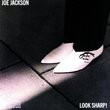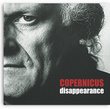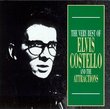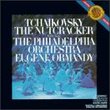| All Artists: Sonic Youth Title: SYR 4: Goodbye 20th Century Members Wishing: 3 Total Copies: 0 Label: Sonic Youth / Syr Original Release Date: 11/16/1999 Release Date: 11/16/1999 Album Type: Enhanced Genres: Alternative Rock, Special Interest, Pop, Rock, Classical Styles: Indie & Lo-Fi, Experimental Music, Vocal Pop, Progressive, Progressive Rock, Opera & Classical Vocal, Chamber Music, Instruments, Electronic Number of Discs: 2 SwapaCD Credits: 2 UPC: 787996900421 |
Search - Sonic Youth :: SYR 4: Goodbye 20th Century
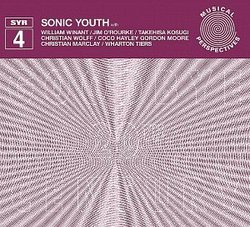 | Sonic Youth SYR 4: Goodbye 20th Century Genres: Alternative Rock, Special Interest, Pop, Rock, Classical
1999 & fourth release on their own SYR label. 13 tracks. The CD format is a double disc set that's enhanced with the CD-ROM video to George Maciunas' 'Piano Piece #13 (Carpenter's Piece) For Nam June Paik'. The album ... more » |
Larger Image |
CD DetailsSynopsis
Album Description 1999 & fourth release on their own SYR label. 13 tracks. The CD format is a double disc set that's enhanced with the CD-ROM video to George Maciunas' 'Piano Piece #13 (Carpenter's Piece) For Nam June Paik'. The album contains music composed by abstract artists like Yoko Ono, Steve Reich, John Cage and Christian Wolff. Gatefold slipcase. 1999 release. Similarly Requested CDs
|
CD ReviewsSy's exclamation point for the millenium Mr. D. Witt | 11/17/1999 (4 out of 5 stars) "fascinating... it's a look forward and backward. it reminds me a lot of the spaciousness of sound that the band achieved with bad moon rising, although a lot less disciplined.i remember seeing a clip on vh1 once with lee ranaldo talking about city sounds and how he loved to open his window and listen to the rhythms of everyday street noises. this album captures it beautifully, with its random occurences of guitar squawks, cymbal crashes, and syllables.although i have already dismissed some of the songs (the nascent "edges" among them), i have a feeling that this one pays off on each successive listen. "pendulum music" and "six for new time" are damn near highpoints of sy's career- it's the kind of pretention that they have always reached for. this time it works better in execution than theory.if this is their millenial exit, i can't wait to see what they're going to come up with for an entrance." Goodbye 20th Century Mr. D. Witt | 01/02/2000 (4 out of 5 stars) "Perhaps one of the riskiest works by Sonic Youth lately, the efforts behind "Goodbye 20th Century" have paid off well. Nonetheless, there are a few mishaps. John Cage's "Four6", lasting over 30 minutes, is severely short on focus, and the result of its rambling feel is quite dull. The same can be said for Christian Wolff's "Burdocks""Six For New Time," written for the project, is the closest thing to a rock song on the album. Incidentally, it is the album highlight, and for that matter, one of the better recordings ever put out by Sonic Youth. "Having Never Written a Note for Percussion" is another outstanding track, with complex layers and an expert use of dynamics employed to create a dreamy and completely enrapturing feel. Takehisa Kosugi's "+-" will probably take a few listenings to be appreciated, but is nonetheless an oustanding example of how dense layers of instrumentation, mixed with scathing white noise and a loose feel successfully work to create an atmosphere that just can't be achieved through any stardard rock strucuture. Appropriately titled, "Goodbye 20th Century" is a must have for fans of the SYR series. While its avant-garde stylings may not be appreciated by all, it is one of the most fascinating albums ever released by this band." Hello 21st Century. Mr. D. Witt | 02/20/2000 (5 out of 5 stars) "To the fellow who's review contained this statement: "In any event, it would seem laughable that anyone could draw any connection between Sonic Youth's interpretations and original works (in any category of music)." I would have to totally disagree with you here. Having heard the works of John Cage, Christian Wolf, James Tenney, Cornelius Cardew and Steve Reich there is a connection by SY's interpretations. Connecting these intrepretations to the original (if there is such) is not the intention here, yet you cannot disregard the ideas of the composers. Eventhough these pieces incorporate improvising, most of the works are composed and are documented as such and SY used the 'scores' as they were intended...as guidelines (i.e. Cornelius Cardew's 'Treatise' is a 193 page graphic score). There are obvious references to the composer's intentions in these interpretations, that is if you listen closely and if you've heard their works before. Yet it isn't necessary to be aquainted with them. Laughable? i think not...The original composer's intentions of these works are not entirely "serious" or "high-brow avant-gardisms", for instance John Cage did many things to break that down (i.e. his silent piece 4'33") and i think Sonic Youth here have continued in that idea."
|

 Track Listings (6) - Disc #1
Track Listings (6) - Disc #1